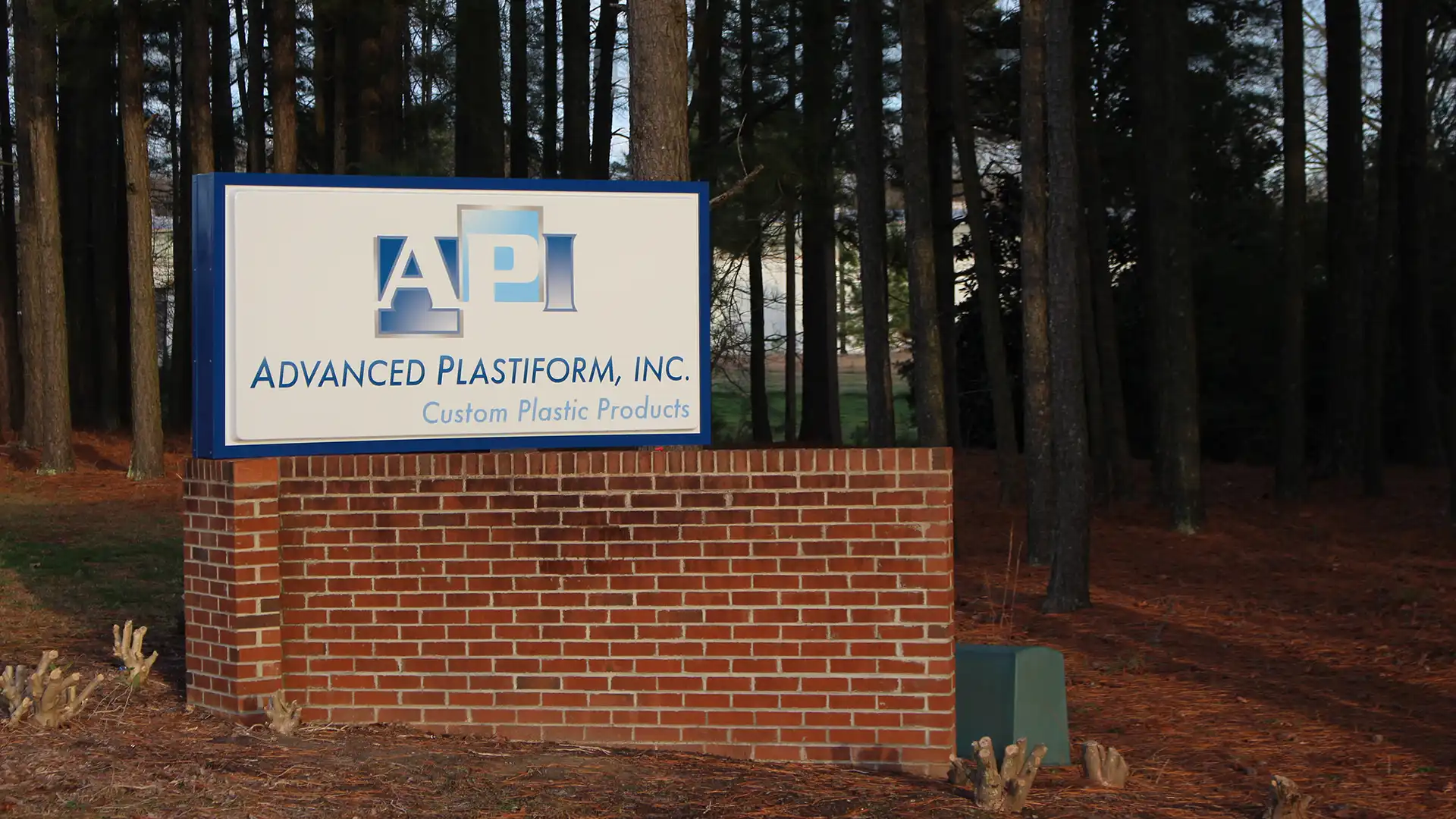Frequently Asked Questions About Acrylonitrile Butadiene Styrene
Acrylonitrile Butadiene Styrene, commonly referred to as ABS, is a thermoplastic polymer that is widely used in a variety of industries and applications. From automotive parts to toys and electrical equipment, ABS is known for its strength, impact resistance, and ability to maintain its shape at high temperatures. With its unique combination of properties, ABS has become a popular choice for manufacturers and designers alike. That’s why our plastic molding and fabrication company has prepared the ultimate guide to all your frequently asked questions about Acrylonitrile Butadiene Styrene (ABS). From explaining its properties, applications, processing methods, and more to help industry professionals as well as curious minds better understand this versatile material.
Acrylonitrile Butadiene Styrene FAQs
Q. What is Acrylonitrile Butadiene Styrene (ABS)?
Answer: Acrylonitrile Butadiene Styrene (ABS) is a thermoplastic polymer commonly used in a variety of applications, including automotive parts, toys, and electrical equipment. It is known for its strength, impact resistance, and ability to maintain its shape at high temperatures.
Q. What are the properties of ABS?
Answer: ABS has a number of desirable properties, including high impact resistance, good dimensional stability, and a low melting point. It also has good chemical resistance and is resistant to UV light degradation.
Q: How is ABS made?
Answer: ABS is made by polymerizing acrylonitrile, butadiene, and styrene monomers. The resulting polymer has a unique combination of properties that make it useful in a variety of applications.
Q: How is ABS used in the manufacturing process?
Answer: Acrylonitrile Butadiene Styrene is a versatile thermoplastic that is widely used in the manufacturing process for a variety of products.
Here are some examples of how Acrylonitrile Butadiene Styrene is used:
- Injection molding: ABS is a popular choice for injection molding, which is a manufacturing process that involves injecting melted plastic into a mold to create a specific shape. This process is used to make a wide range of products, such as automotive parts, toys, electronic housings, and household appliances.
- 3D printing: ABS is also used in 3D printing, a process that creates three-dimensional objects by layering materials on top of each other. ABS is a common material for 3D printing because it is strong, durable, and easy to work with.
- Extrusion: ABS can be extruded into a variety of shapes, including pipes, tubes, and sheets. Extrusion involves pushing the melted plastic through a die to create a specific shape.
- Sheet forming: ABS sheets are commonly used in thermoforming, which is a process that involves heating the plastic sheet until it becomes pliable and then molding it into a specific shape. Twin sheet thermoforming, where two plastic sheets are fused together to build a product mold, can use ABS to create products such as automotive dashboards, instrument panels, and luggage shells.
Q: What are the applications of ABS?
Answer: ABS is a versatile thermoplastic that is widely used in various applications due to its desirable properties, including strength, toughness, heat resistance, chemical resistance, and ease of processing.
Here are some common applications of Acrylonitrile Butadiene Styrene:
- Automotive industry: ABS is used to manufacture a wide range of automotive parts, including bumpers, grilles, dashboard components, trim, and interior parts. Its strength and impact resistance make it ideal for these applications.
- Electronics industry: ABS is used to make computer keyboard keys, computer housings, and other electronic components. Its heat resistance and ease of processing make it a popular choice for these applications.
- Consumer products: ABS is used to manufacture a wide range of consumer products, including toys, luggage, sporting goods, and office equipment. Its durability and ease of processing make it ideal for these applications.
- Pipes and fittings: ABS is used in pipes and fittings for drainage systems and ventilation systems due to its resistance to chemicals, heat, and impact.
- Medical industry: ABS is used to manufacture medical devices, including syringes, inhalers, and drug delivery devices, due to its biocompatibility and ease of processing.
- Construction industry: ABS is used in construction applications, including trim and molding, due to its strength, toughness, and ease of processing.
Q: Is ABS recyclable?
Answer: Yes, ABS is recyclable and is commonly recycled to produce new ABS products. It is important to follow proper recycling procedures to ensure the quality of the recycled material.
Q: What are the disadvantages of ABS?
Answer: One of the main disadvantages of ABS is its tendency to warp or deform during printing or processing. This can be due to factors such as temperature fluctuations and improper cooling. ABS also has a relatively low heat resistance compared to other thermoplastics.
Q: Can ABS be painted?
Answer: Yes, ABS can be painted, but it requires proper surface preparation to ensure good adhesion. ABS can be sanded or treated with a primer specifically designed for ABS to improve paint adhesion.
Q: What is the difference between ABS and PVC?
Answer: ABS and Polyvinyl Chloride (PVC) are both thermoplastics, but there are some key differences between the two materials. ABS has a higher impact resistance and is more durable, while PVC is more flexible and has a lower melting temperature. The choice between the two materials will depend on the specific needs of the project at hand.
The main differences between ABS and PVC are:
- Chemical structure: ABS is a terpolymer made up of acrylonitrile, butadiene, and styrene, while PVC is a polymer made up of vinyl chloride.
- Strength and flexibility: ABS is stronger and more impact-resistant than PVC, making it a better choice for applications that require durability, such as automotive parts, toys, and electronic housings. PVC, on the other hand, is more flexible and has good resistance to chemicals and weathering, making it a popular choice for pipes, cable insulation, and outdoor signage.
- Heat resistance: ABS has a higher melting point than PVC, which means it can withstand higher temperatures without deforming or melting. PVC, on the other hand, has a lower melting point and is prone to warping and deformation at high temperatures.
- Cost: ABS is generally more expensive than PVC, due to the higher cost of its raw materials and the more complex manufacturing process.
Q: Is ABS toxic?
Answer: ABS is considered to be non-toxic, but it may release potentially hazardous fumes when burned. It is important to use ABS in well-ventilated areas and to take appropriate safety measures when working with ABS products.
Q: How does ABS hold up in extreme temperatures?
Answer: ABS has a relatively low heat resistance and is not suitable for use in high-temperature applications. It can deform or become brittle at temperatures above its melting point.
Q: Can ABS be used in food contact applications?
Answer: ABS is not considered food-safe and is not approved for use in food contact applications. There are alternative materials available, such as polycarbonate, polyethylene, or polypropylene, that are specifically designed for use in food contact applications.
Q: What is the process for machining ABS?
Answer: ABS can be machined using conventional techniques, such as drilling, turning, and milling. However, care must be taken to ensure that the temperature does not rise too high during the machining process, as this can cause deformation or warping.
Q: Can ABS be used in outdoor applications?
Answer: ABS is not recommended for use in outdoor applications, as it is not UV-resistant and can degrade over time when exposed to sunlight. Alternative materials, such as polycarbonate or PETG, are better suited for outdoor applications.
Q: How does ABS compare to other thermoplastics in terms of cost?
Answer: ABS is generally more expensive than other thermoplastics, such as PVC or polyethylene. However, its unique combination of properties, such as high impact resistance and good dimensional stability, make it a popular choice for certain applications.
Contact Advanced Plastiform Today for Your ABS Manufacturing Services
If you're looking for a reliable partner for your ABS manufacturing needs, look no further. Our plastic thermoforming company has extensive experience in producing high-quality ABS products for a wide range of industries. With our state-of-the-art equipment and experienced technicians, we can help you bring your designs to life with precision and efficiency. From prototyping to full-scale production, we have the expertise and capabilities to meet your ABS manufacturing requirements.
Contact us today to learn more about our ABS manufacturing services and how we can help you achieve your goals by calling us today at 919-404-2080 or filling out our contact form to get started.


